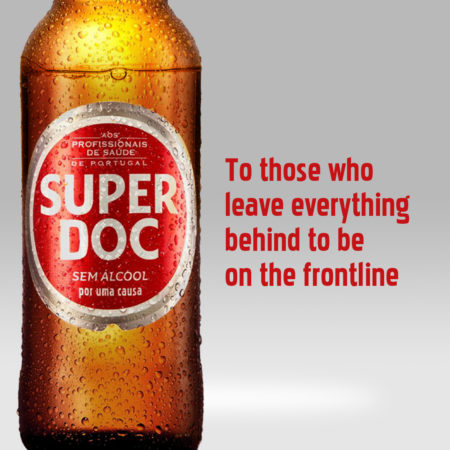Business in times of solidarity

By Sandro Rego
Two paths are being taken by companies engaged in fighting the Covid-19 pandemic: solidarity and business reinvention. Both are valid and intended to reduce damage during the crisis. In Portugal – which gained prominence in global outlets for the way it has conducted the pandemic – solidarity proved to be a war effort. For example: Was there a lack of disinfectant for firefighters and health teams? Breweries were willing to help at no cost in the production of sanitizers and donate it to professionals in the front line to fight Covid-19. Did the food exchange program, which guarantees sustenance for hundreds of impoverished families, need reinforcement? Grocery stores that are competitors joined in donating food. And so these companies return to society what society has done for them by purchasing their products and services. “Ten years ago, you chose us. I want to say thank you. If you need to, take what you find in this basket for free,” said a sign in front of a small grocery a few days ago.
These are actions that enchant and will remain in the memory of many. Will they disappear after the pandemic?
Companies that quickly adapted their production to meet a new and urgent demand kept jobs, income, and a purpose for employees, something increasingly sought after by younger professionals – challenging to attract and retain. To have an idea of this situation in Portugal, between 2014 and 2019, according to data from the Emigration Observatory, more than half a million Portuguese young people left the country in search of better opportunities abroad.
How will companies transition from urgent demand to the announced new normality? Corporate social responsibility is at the origin of many Portuguese family businesses, which were born with a purpose. However, this initial mission does not always manifest itself in difficult times like the current one. Sometimes it remains as an intention or hidden under timid initiatives that do not dialogue with its audiences or inspire others to do the same. The crisis caused them to assume this role.
The crisis also forces everyone to rediscover their purpose because companies are the primary forces for change in society. Wars, revolutions, and pandemics accelerate processes from which we can all benefit. The most valued companies will be those that understand what it is to be socially responsible, with coherent, consistent attitudes and that have a positive social impact on society.
The pandemic reinforced the importance of the collective and the connection between different social actors. The idea of profit at any cost and that the company should not repay its gains to society is doomed to end. Anyone who persists in this error compromises their image and reputation with serious marketing consequences and in the post-pandemic corporate world.
The economic recovery in Portugal, as in the rest of the world, is still unknown, but it will depend on decisions that are being taken now.
The pandemic left us facing a common enemy, forcing us to join efforts to find a solution. But the needs are many and persist as threats to the general well-being. Portuguese companies that see these gaps and take them into account already beckon the world with a new way of doing business.

Sandro Rego is CEO of Priori, a communications agency in Portugal dedicated to social impact causes and projects. He was general manager of FleishmanHillard agency and communications executive at Banco Safra, Boticário Group, Bunge, and Companhia Siderúrgica Nacional (CSN). He was “Communicator of the Year” at the Aberje 2014 Award. He currently lives in Portugal and is the editor of BRpr’s “Also in Portuguese” section.
COMENTÁRIOS:
Destaques
- Escola Aberje leva comunicadores para Amazônia em expedição imersiva
- Encontro de líderes debate responsabilidade do setor empresarial e papel da comunicação na COP30
- Aberje realiza reunião presencial com Comitês de Estudos Temáticos em São Paulo
- A comunicação é forte em mercados em que as associações são fortes
- Aberje participa do painel de entidades no 19º Congresso da Abraji
ARTIGOS E COLUNAS
Marcos Santos Maratona da vidaMônica Brissac Thought Leadership: marca pessoal x reputação corporativaLetícia Tavares Liderança comunicadora: um tema sempre atualHamilton dos Santos Comunicação é estratégica na economia contemporâneaCarlos Parente Um salto ornamental para mergulhar no pires



























